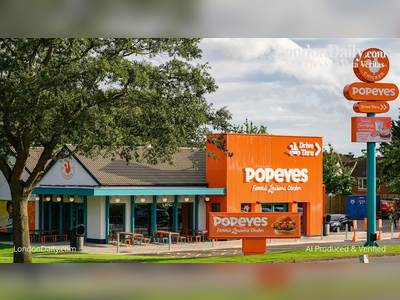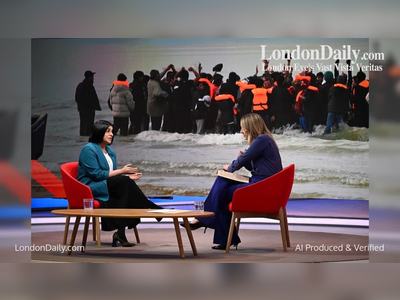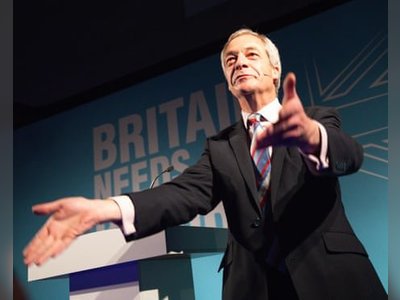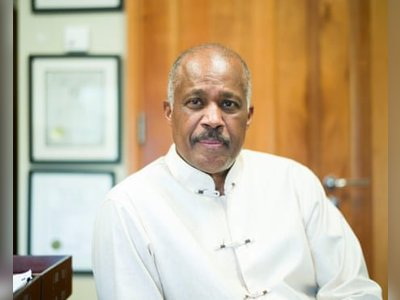
Sri Lankan Influencer Builds Vast UK-targeted Network of Anti-Migrant Facebook Pages
Investigation finds over 100 pages spreading disinformation for profit, fuelling UK online hate and far-right themes
A network of more than one hundred Facebook pages targeting the United Kingdom with anti-migrant and Islamist-connected disinformation has been linked to Sri Lankan influencer Geeth Sooriyapura.
The pages, which collectively had over 1.6 million followers, featured AI-generated imagery, false claims about migrants and Muslims, and adverts disguised as grassroots content.
According to an investigation by the Bureau of Investigative Journalism and the Institute for Strategic Dialogue, Sooriyapura operated an “academy” model teaching students to create pages and monetise them via Facebook’s advertising network.
He claimed earnings of around three hundred thousand dollars and encouraged targeting older British audiences using “immigration” and “white identity” themes.
Examples of posts included fabricated imagery of UK political figures and provocative messages such as “welfare for British citizens only”.
The content frequently portrayed migrants as invaders and leveraged AI-generated visuals and false headlines.
Some pages shared images of the UK Prime Minister in Muslim dress despite no photographic evidence of such a scenario.
While some pages have since been removed by Meta for “inauthentic behaviour”, many remain live and continue to attract engagement.
UK-based far-right figures and official pages from the Reform UK party appeared to interact with content from the network, including resharing posts, suggesting the disinformation ecosystem had penetrated mainstream political channels.
One Reform UK councillor commented approvingly on an AI-generated image created by the network.
MPs have called for urgent regulation to tackle the monetisation of hate online, pointing to this case as a clear demonstration of how foreign or non-state actors can profit from spreading divisive content.
The network’s growth underscores how AI tools, social media monetisation and partisan messaging can combine to undermine digital-and electoral integrity.
Meta said it had removed pages linked to the actor’s network that violated platform policies.
However, analysts warn that removal of some pages does not erase the broader infrastructure—including training modules, copycat pages and business models built on hate and engagement.
As lawmakers in London prepare to legislate tighter rules for online platforms and foreign-actor interference, this case adds urgency and real-world evidence of disinformation operations entering UK-dominated social ecosystems.
The pages, which collectively had over 1.6 million followers, featured AI-generated imagery, false claims about migrants and Muslims, and adverts disguised as grassroots content.
According to an investigation by the Bureau of Investigative Journalism and the Institute for Strategic Dialogue, Sooriyapura operated an “academy” model teaching students to create pages and monetise them via Facebook’s advertising network.
He claimed earnings of around three hundred thousand dollars and encouraged targeting older British audiences using “immigration” and “white identity” themes.
Examples of posts included fabricated imagery of UK political figures and provocative messages such as “welfare for British citizens only”.
The content frequently portrayed migrants as invaders and leveraged AI-generated visuals and false headlines.
Some pages shared images of the UK Prime Minister in Muslim dress despite no photographic evidence of such a scenario.
While some pages have since been removed by Meta for “inauthentic behaviour”, many remain live and continue to attract engagement.
UK-based far-right figures and official pages from the Reform UK party appeared to interact with content from the network, including resharing posts, suggesting the disinformation ecosystem had penetrated mainstream political channels.
One Reform UK councillor commented approvingly on an AI-generated image created by the network.
MPs have called for urgent regulation to tackle the monetisation of hate online, pointing to this case as a clear demonstration of how foreign or non-state actors can profit from spreading divisive content.
The network’s growth underscores how AI tools, social media monetisation and partisan messaging can combine to undermine digital-and electoral integrity.
Meta said it had removed pages linked to the actor’s network that violated platform policies.
However, analysts warn that removal of some pages does not erase the broader infrastructure—including training modules, copycat pages and business models built on hate and engagement.
As lawmakers in London prepare to legislate tighter rules for online platforms and foreign-actor interference, this case adds urgency and real-world evidence of disinformation operations entering UK-dominated social ecosystems.









